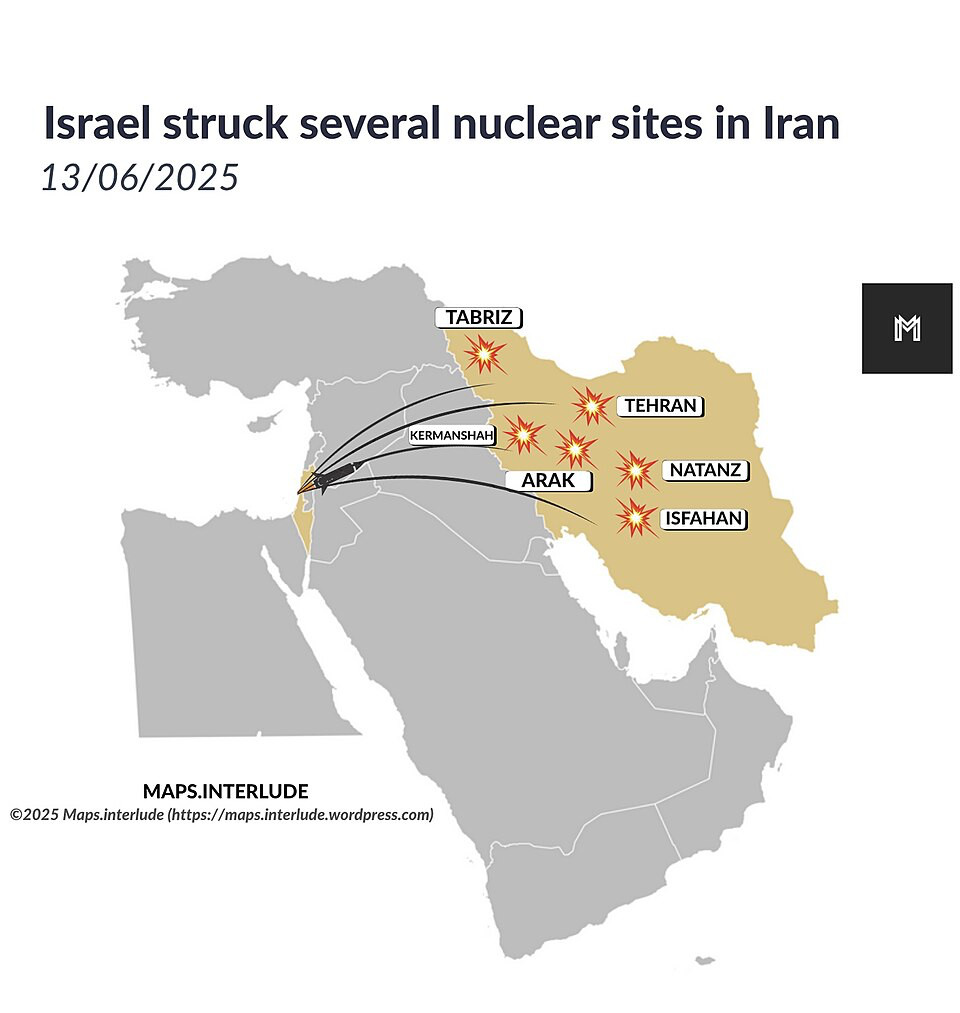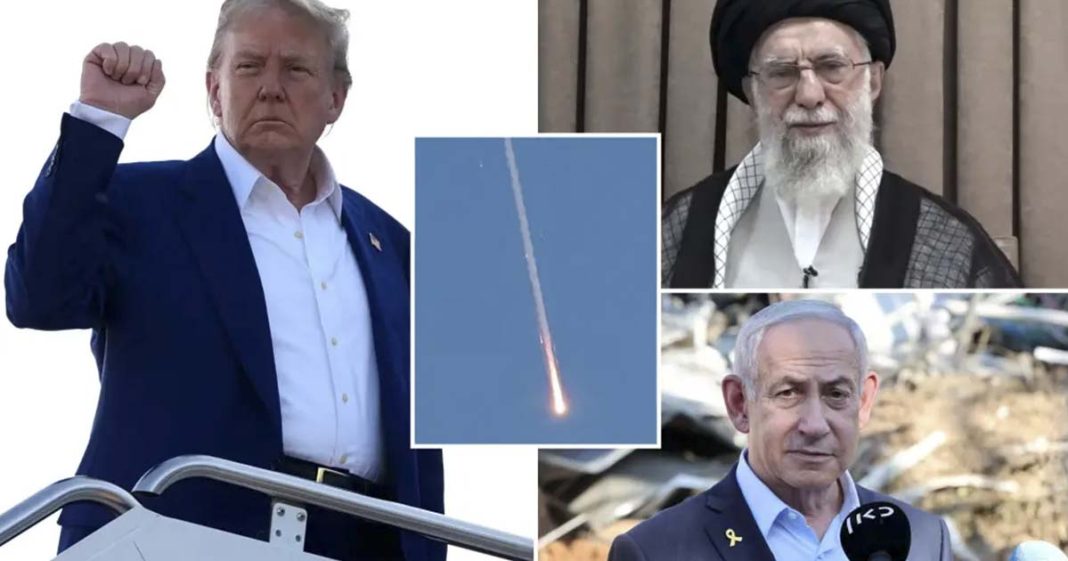Nobel Peace Prize Nomination for Trump: A Controversial Move Amidst Ongoing Conflict
In an unexpected turn of events, Rep. Buddy Carter has formally nominated former President Donald Trump for the prestigious Nobel Peace Prize. This nomination was submitted to the Nobel Committee on a Tuesday, drawing considerable attention due to its timing amidst ongoing hostilities between Israel and Iran. Carter’s letter extolled Trump’s “extraordinary and historic role” in what many are referring to as the 12-Day War, which erupted when Israel launched a preemptive strike against Iran, citing imminent threats posed by Tehran’s alleged nuclear ambitions. This nomination has not only reignited discussions surrounding Trump’s legacy but also provoked widespread debate regarding the criteria for peace recognition in the current geopolitical climate.

As Rep. Carter was drafting his commendatory letter, the military exchanges between Israel and Iran continued unabated, raising questions regarding the validity and implications of such a nomination. The ceasefire that Trump purportedly brokered seemed to be unraveling even before it could take effect, leading to a broader discussion about the criteria for earning a peace accolade in the midst of persistent conflict. Can one genuinely receive a Nobel Peace Prize for halting a war that appears to be ongoing? This conundrum highlights the complexities associated with peace negotiations and the ramifications of awarding such honors amidst active strife.

The Origins of the Conflict
The conflict ignited when Israel executed a preemptive strike against Iranian military targets, a move that was justified by Israeli officials as necessary to thwart Tehran’s progress towards acquiring nuclear weapons. This strike marked a significant escalation in tensions that have been brewing for years. As hostilities escalated, both nations engaged in a barrage of military actions, with each incident marked by loss of life and property. The situation intensified further when the United States intervened militarily, launching airstrikes against three Iranian nuclear facilities, which U.S. officials later characterized as the most substantial B-2 strike in American history. This marked a turning point, not just in the conflict, but also in international relations, raising questions about the role of global powers in regional disputes.
Trump’s Role in the Ceasefire Announcement
On a Monday afternoon, Trump announced what he hoped would be a historic ceasefire agreement, intended to take effect overnight. In his remarks, he emphasized the collaborative efforts of the United States and its allies in achieving a temporary respite from escalating violence. Israeli officials expressed their gratitude towards Trump and the U.S. for their support, claiming that their military objectives had been met by significantly impairing Iran’s nuclear capabilities. However, this seemingly optimistic outlook was met with widespread skepticism and confusion both domestically and internationally.
However, the ceasefire agreement was marked by ambiguity and skepticism. The initial terms stated that both parties would cease hostilities, with Israel halting its military operations targeting Iranian nuclear sites, while Iran would be expected to refrain from launching ballistic missiles at Israeli cities. Reports indicated that hostilities were continuing even as the announcement was made, casting doubt on Trump’s assertion of peace. Many analysts noted that this kind of fragile agreement often falls apart in the face of entrenched animosities, raising questions about whether a ceasefire can truly be labeled as “historic” if it is not upheld by both sides.
The Implications of the Nobel Nomination
The nomination of Trump for the Nobel Peace Prize has sparked a heated debate regarding the nature of peace and the ethics of recognizing efforts in conflict resolution. Critics argue that awarding such a prestigious accolade to an individual amidst a backdrop of violence sends a conflicting message about the standards for peacekeeping. Furthermore, it raises crucial questions about the essence of diplomatic success and the responsibilities of leaders in navigating complex geopolitical landscapes. For many, the very act of nominating Trump for this award symbolizes a disregard for the ongoing suffering and chaos affecting countless lives in Israel and Iran.
Supporters of the nomination, however, contend that Trump’s efforts should be acknowledged, regardless of the current state of affairs. They argue that initiating a dialogue and proposing a ceasefire can be seen as a significant step towards peace, even if the results are not immediately tangible. This perspective highlights the complexities of international relations, where the mere act of attempting to facilitate peace can be deemed worthy of recognition. Yet, in an era where the implications of such moves are scrutinized, the distinction between intention and outcome becomes increasingly blurred.
The Future of U.S.-Iran Relations
Looking ahead, the future of U.S.-Iran relations remains uncertain, particularly in light of the recent hostilities and the underlying tensions that have persisted for decades. The dynamics of this conflict are further complicated by internal political challenges within both countries, as well as their respective alliances with other global powers. The nomination of Trump for the Nobel Peace Prize serves as a reminder of the fragile nature of peace in regions plagued by longstanding animosities and the need for sustained diplomatic efforts. Key players in the region, including Russia and China, closely observe these developments, as their own interests often conflict with those of the U.S. and its allies.
As the global community watches closely, the question remains: can genuine peace be achieved, and if so, at what cost? The ongoing situation between Israel and Iran illustrates that achieving a lasting truce requires more than mere political gestures; it demands a concerted commitment from all parties involved to engage in meaningful dialogue and take substantial steps toward reconciliation. Not only do political leaders need to commit to de-escalation, but they also must work to build trust—a crucial component that has been sorely lacking in recent years.

















